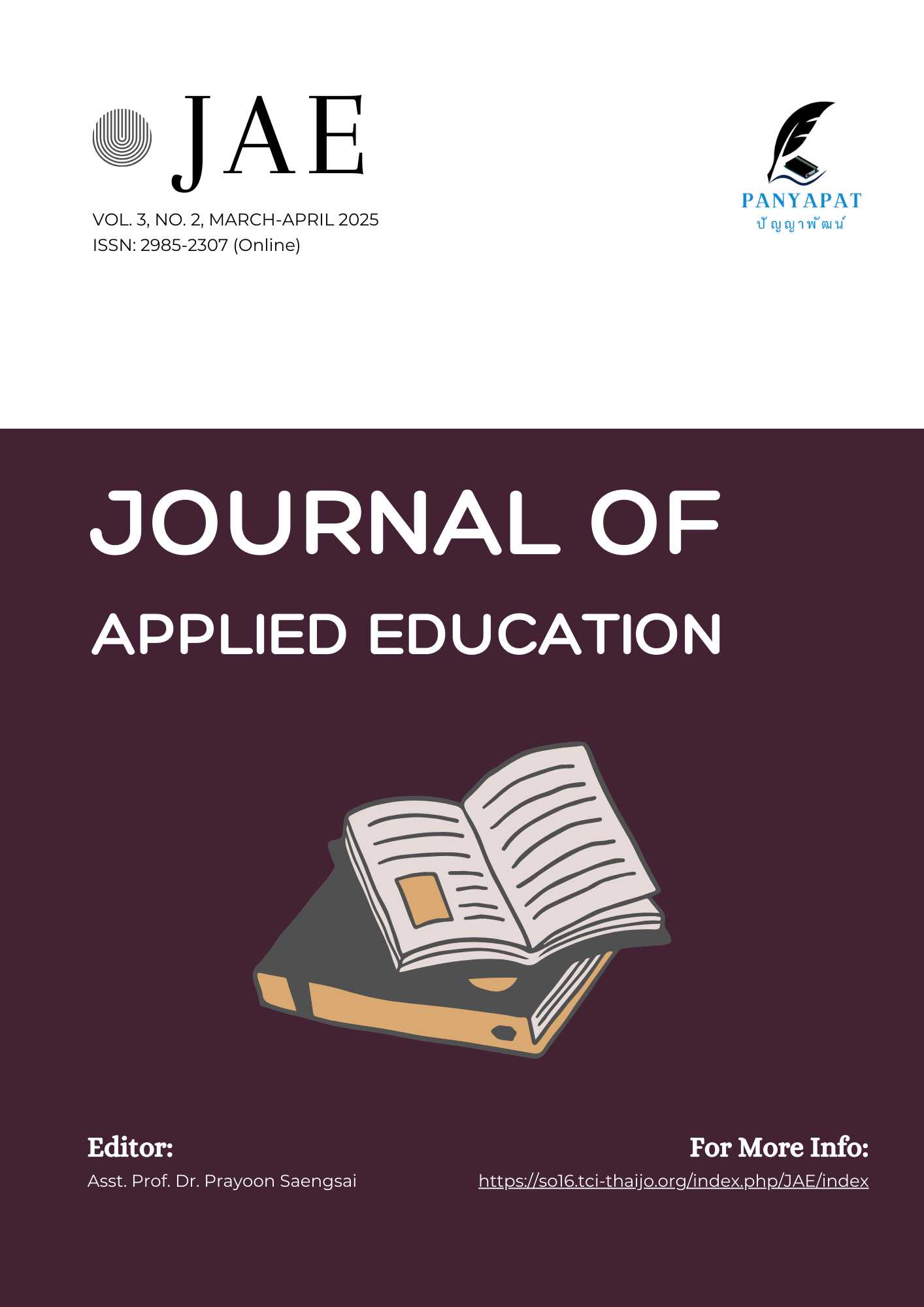An Analysis and Study of Curriculum Changes in Thai Education: Factors, problems, and Developmental Approaches
Main Article Content
Abstract
This article aims to study and analyze the changes in the Thai education curriculum by examining the factors that influence curriculum changes, the problems arising from the implementation of the curriculum, and the approaches to developing Thai education. The curriculum serves as a key mechanism in developing students to possess the characteristics and skills of the 21st century, particularly critical thinking and problem-solving skills. It is also an important force in enhancing the competitive potential of the country to keep pace with global changes. However, the current core curriculum has been in use for over 16 years and was last updated in 2023. Scholars believe it is outdated, inconsistent with the economic and social context, and lacks flexibility, thus failing to fully meet the needs of modern learners. A good curriculum must be developed and monitored regularly, while fostering collaboration among all sectors to establish a shared vision of what Thai children and youth should be like. When the curriculum is systematic, modern, and connected to real contexts, other educational systems will be sustainably elevated alongside it.
Article Details

This work is licensed under a Creative Commons Attribution-NonCommercial-NoDerivatives 4.0 International License.
References
กระทรวงศึกษาธิการ. (2566). การปรับปรุงหลักสูตรแกนกลางการศึกษาขั้นพื้นฐาน พุทธศักราช 2551. สำนักงานคณะกรรมการการศึกษาขั้นพื้นฐาน.
จิตตวิสุทธิ์ วิมุตติปัญญา. (2568). การพัฒนาหลักสูตรและการจัดการศึกษาไทย. สืบค้นจาก https://identity.bsru.ac.th/archives/1895
จิราภรณ์ ชูมณี. (2565). ความสำคัญของการประเมินผลในกระบวนการนโยบายการศึกษา. วารสารวิจัยการศึกษา, 27(1), 12–25.
ชุติมา อินทร์แก้ว. (2566). การเปลี่ยนแปลงนโยบายการศึกษากับผลกระทบต่อครูและผู้บริหาร. วารสารการศึกษาท้องถิ่น, 14(3), 45–60.
ทีดีอาร์ไอ. (2566). วิเคราะห์วิกฤตการศึกษาจากผลสอบ PISA 2022. กรุงเทพฯ: สถาบันวิจัยเพื่อการพัฒนาประเทศไทย.
ธัญลักษณ์ สุวรรณวัฒน์. (2562). นโยบายการศึกษากับความหลากหลายในบริบทท้องถิ่น. วารสารพัฒนาการศึกษา, 19(4), 45–58.
พงศ์ทัศ วนิชานันท์. (2566). การปฏิรูปการศึกษาไทย: บทเรียนจากผลสอบ PISA 2022. กรุงเทพฯ: สถาบันวิจัยเพื่อการพัฒนาประเทศไทย (ทีดีอาร์ไอ).
มารุต พัฒผล. (2567). แนวคิดหลักการพัฒนาหลักสูตร. (พิมพ์ครั้งที่ 2). กรุงเทพฯ: ศูนย์ผู้นำนวัตกรรมหลักสูตรและการเรียนรู้.
วิทยา เพิ่มพูล. (2564). ปัญหาการปรับใช้หลักสูตรแกนกลางการศึกษาขั้นพื้นฐานในบริบทท้องถิ่น. วารสารวิจัยการศึกษา, 10(4), 101–118.
สมาน อัศวภูมิ. (2560). ทบทวนนิยามการศึกษาและการเรียนรู้: จุดเริ่มต้นการแก้ปัญหาคุณภาพการศึกษา. วารสารราชธานีนวัตกรรมทางสังคมศาสตร์, 1(3), 4–5.
สำนักงานเลขาธิการสภาการศึกษา. (2560). แผนการศึกษาแห่งชาติ พ.ศ. 2560–2579. กรุงเทพฯ: พริกหวานกราฟฟิค.
สำนักงานเลขาธิการสภาการศึกษา. (2564). รายงานการศึกษาการพัฒนาคุณภาพผู้เรียนจากผลการทดสอบ O NET และ PISA (1). กรุงเทพฯ: บริษัท 21 เซ็นจูรี่.
สุพจน์ มงคลธนวิจิตร. (2564). การปฏิรูปการศึกษากับความท้าทายในการกำหนดนโยบาย. วารสารนโยบายและการบริหาร, 8(2), 89–102.
สุรีย์พร แก้วมณี. (2565). การมีส่วนร่วมของชุมชนในการพัฒนาหลักสูตร. วารสารศึกษาศาสตร์, 18(1), 22–38.
แสงระวี มงคลบุญ. (2563). บทบาทของผู้มีส่วนได้ส่วนเสียในกระบวนการนโยบายการศึกษา. วารสารสังคมศาสตร์ไทย, 21(1), 101–120.
Fullan, M. (2020). The new meaning of educational change. (5th ed.). New York: Teachers College Press.
Marsh, C., & Willis, G. (1995). Curriculum: Alternative approaches, ongoing issues. New Jersey: Prentice Hall.
Sanguanngarm, N. (2020). Factors affecting the failure of Thai education to equip Thai students with 21st century skills. Community and Social Development Journal, 21(2), 1–19.
Verma, A., Verma, K., & Yadav, V. (2023). Education: Meaning, definition & types. In Agriculture extension education (pp. 1–6). Uttar Pradesh: S.R. Scientific Publication.

